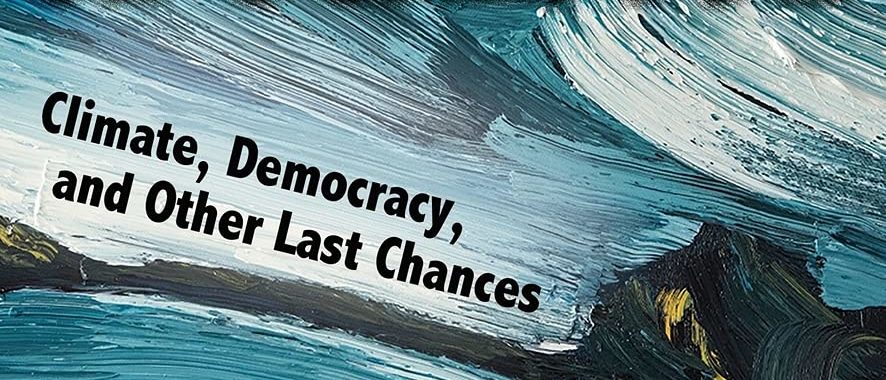“Facing Apocalypse: Climate, Democracy and Other Last Chances” by Catherine Keller
Facing Apocalypse: Climate, Democracy and Other Last Chancesby Catherine Keller As the fires, floods, and droughts of climate change spiral around a planetary pandemic and intensify political precarity, the ancient symbol of apocalypse keeps finding new life. It pulses — quite apart from continuous fundamentalist deployments — across secular news sources (the “Insect Apocalypse,” “the…








